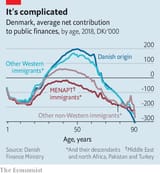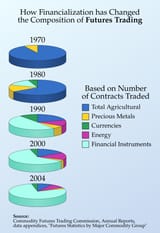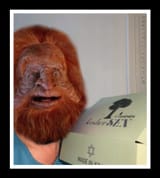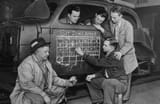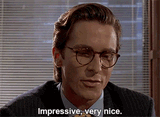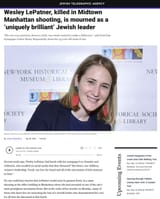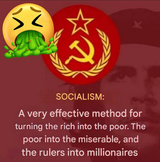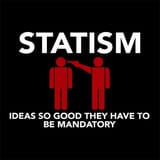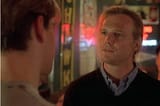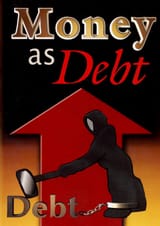Anonymous
ID: iIdSn3lT
8/4/2025, 12:03:31 AM No.512155014
Libertarianism claims that money is an emergent market phenomenon derived from just voluntary exchange, and that capitalist profits emerge from money when entrepreneurs create value for society, and are therefore also just.
Their entire theory is the state merely creates waste, like a parasite, and abolishing the state will allow the emergent "free market" to operate optimally.
This is all totally wrong.
Money is not in fact emergent from organic trade. Systems of barter allowed for informal, tacit arrangements where debts didn't have to be settled with precision, which is the function money provides.
The only time precise debt settlement was needed was with the weregild, the blood money to buy out of a family feud. This weregild concept was extended to pay off warlords in the form of protection money, which then became taxes.
With the introduction of the state and taxes, money finally became universally valuable. This in fact increased trade beyond the issuing state's political control, but the value of money was premised on it being redeemable for taxes at the end of the day.
Pre-money was also protection money, but more informally within local class structures, trade between distant wealthy petty chiefs.
1/3
Their entire theory is the state merely creates waste, like a parasite, and abolishing the state will allow the emergent "free market" to operate optimally.
This is all totally wrong.
Money is not in fact emergent from organic trade. Systems of barter allowed for informal, tacit arrangements where debts didn't have to be settled with precision, which is the function money provides.
The only time precise debt settlement was needed was with the weregild, the blood money to buy out of a family feud. This weregild concept was extended to pay off warlords in the form of protection money, which then became taxes.
With the introduction of the state and taxes, money finally became universally valuable. This in fact increased trade beyond the issuing state's political control, but the value of money was premised on it being redeemable for taxes at the end of the day.
Pre-money was also protection money, but more informally within local class structures, trade between distant wealthy petty chiefs.
1/3
Replies:


